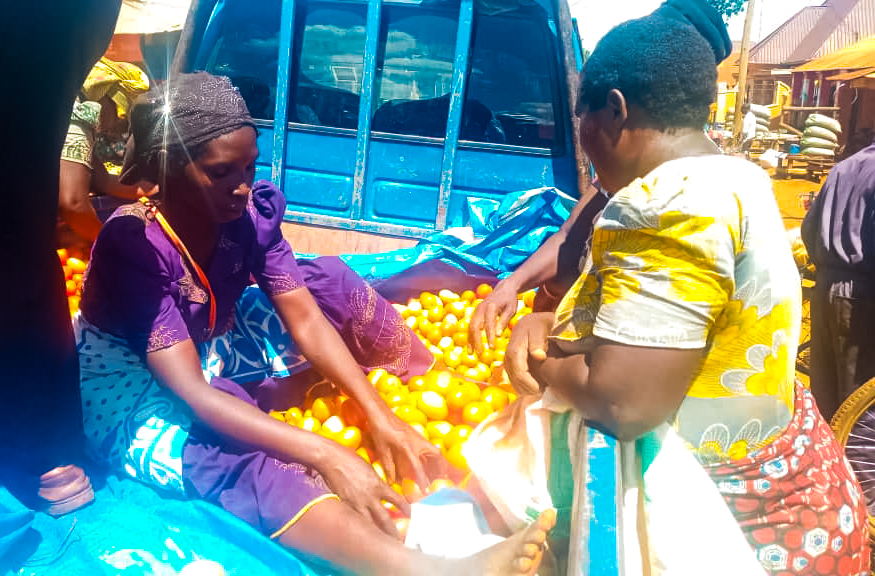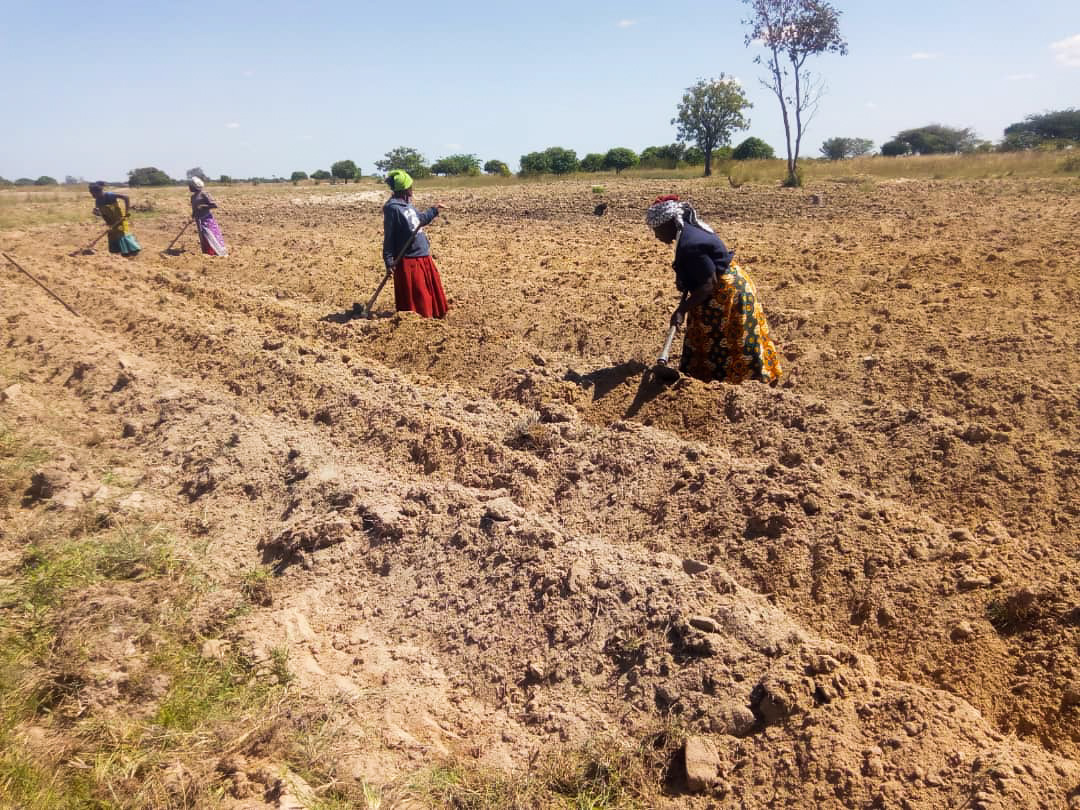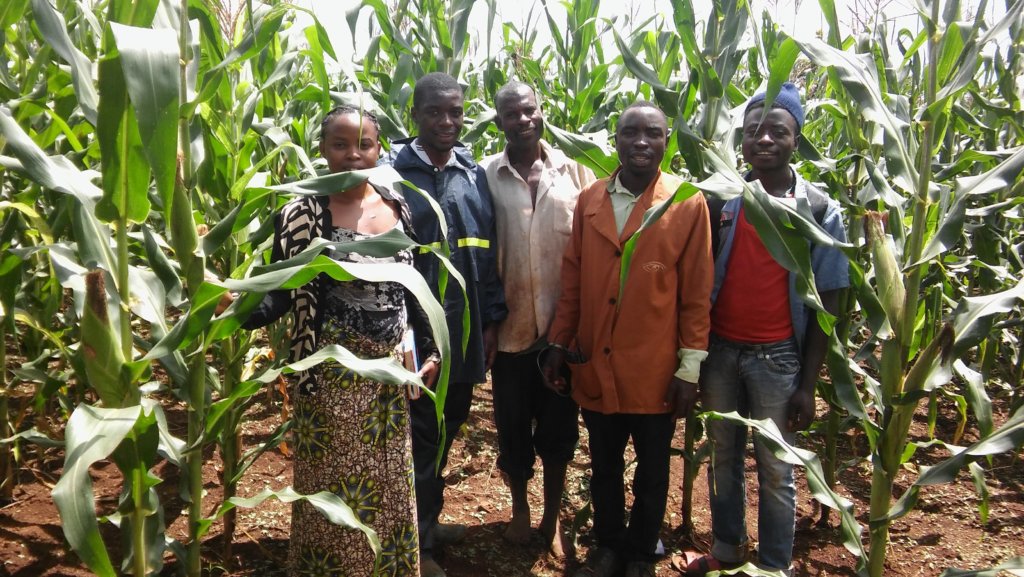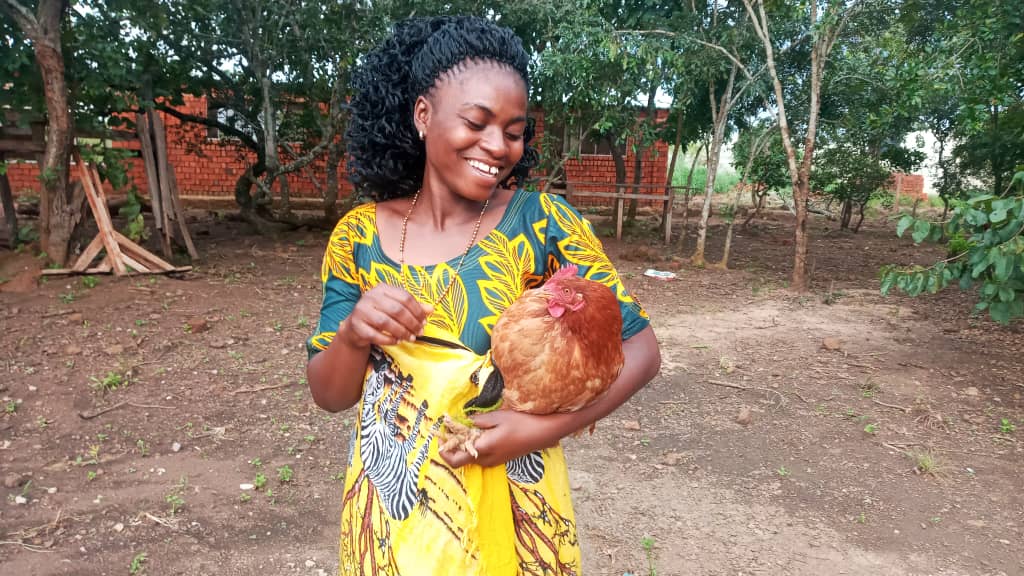
Agriculture is the backbone of rural Tanzania, and the route out of poverty. Almost everyone in Zeze is a farmer, and most lives and surrounding communities totally depend on agriculture. But climate change has led to a reduction in rainfall in Zeze. Alongside drought, crop diseases and insects, increased heat and winds speed. All these factors contribute to poor agricultural production. Consequently, the subsistence farmers are finding it increasingly difficult to grow enough food to feed their families, let alone to sell and pay for medicine or school uniforms.
“Until a few decades ago, crop yields were good, so we could live well,” Benedicto explains. But when the effects of climate change appeared – such as reduced rainfall – and an increase in poor land management practices led to a sudden drop in harvests, “life became a lot harder, and we often didn’t have enough to eat.”
The overall environmental impacts associated with the factors stated above are deforestation and loss of natural vegetation cover, land droughts and soil erosion, inadequate and unreliable rainfall in a year, the decrease of agricultural produce and increased poverty intensity, migration and unsettled families. As a result of over farming and failed crops, farmers are expanding on to virgin land, and contributing to deforestation. The instability of income, mass poverty and poor environmental education leads to the illegal burning of charcoal, felling trees, burning bushes to make wildfires, uprooting trees and debarking them for herbs and other needs.
Local people need a strategy to encourage them to embrace new practices to combat these difficulties and maintain sustainable agricultural practices that will heal the land, produce more crops, and combat climate change. This collective effort serves the purpose of safeguarding our environment, both in the present and for future generations.

Because of income poverty, communities take desperate and drastic actions to improve agriculture, including farming on what should be protected land. The destruction of bush, trees and over-farming land, results in a lack of biodiversity and prevents the land from recovering, prolonging the limited agricultural produce and continuing the vicious cycle.
Education not only empowers farmers to optimise their yields but also plays a vital role in shaping the future of food systems and ensuring global food security. Moreover, it promotes entrepreneurship and rural development by cultivating a new generation of agri-entrepreneurs who can drive economic growth and create employment opportunities. By emphasising the importance of agricultural education, we can pave the way for a more sustainable, resilient, and food-secure world. By imparting knowledge about farming practices, crop management, livestock care, and sustainable agriculture techniques, it equips individuals with the skills needed to address the complex challenges faced by the agricultural industry, in a difficult climate. For example, we have made 28 tons of biochar from agricultural waste and used it to improve yields, and trained more than 20,000 people in how to mitigate the effects of climate change.
We provide farmers with cassava, sunflower, and maize seeds, thus enabling them in time to sell their own seeds. As a result, food crop production has increased dramatically in the past four years and is helping to improve living standards among families in Zeze and Kasulu District as a whole.
Previously farmers in rural areas like ours used local poor farming methods with limited yields. For example, one acre was yielding a maximum of 300kg of maize but now yields in cassava, maize, sunflower and other crops have improved by more than 150%. One-acre farms which produced up to 3 bags of maize, now harvest 18 – 28 bags, sunflower increased by up to 8 bags per acre, cassava increased from 8 to 30 bags per acre. All these increases have huge impacts on living conditions to the smallholder farmers in Kasulu rural. Up to 31st May 2024, more than 18,900 farmers benefited from our food system services. We have now become a certified crop seed producer which will allow us to provide better quality seeds enabling us to help many more people going forwards.
Selling crops in developing communities not only provides access to nutritious food but also helps to stimulate the local economy by supporting small-scale farmers and promoting entrepreneurship. It fosters a sense of community pride and self-sufficiency, as residents can rely on the local agricultural sector for their food needs. Indeed, local farmers can directly sell their fresh produce within their own communities, eliminating the need for intermediaries and reducing transportation costs. This creates a more affordable and accessible food supply for community members, ensuring they have access to quality, locally-grown produce.
Furthermore, these transactions often promote sustainable farming practices, organic farming, and the preservation of traditional agricultural methods, which are valuable for the cultural heritage and environmental sustainability of developing communities.
“Food was a big challenge to my family, I didn’t have enough food throughout the year, I didn’t even manage to farm more land and support my family’s education. I adapted improved farming and made more sacks of harvests from 2 to 19 sacks of maize per one acre. I pay school fees, school uniform, feed the family and my children are doing well in school” – Jefason.

MVG helps farmer implement advanced irrigation systems, such as drip irrigation or hydroponics. Greenhouses with efficient irrigation systems play a crucial role in ensuring consistent crop production. These controlled environments provide a host of benefits, including protection from adverse weather conditions, pests, and diseases. The water supply can be precisely managed, optimising water usage and minimising waste.
This efficient water distribution, coupled with the controlled climate inside the greenhouse, creates an ideal growing environment for crops throughout the year. It enables farmers to extend the growing season, cultivate crops in regions with unfavourable climates, and have greater control over factors like temperature, humidity, and nutrient delivery.
Food poverty means that farmers often unknowingly encroach on and misuse the natural environment whilst trying to provide for their families. To help the community with a different route to an income, we provide access to loans for small businesses. Such loans can give people from the community a chance to undergo business and farming training and education and expand their farming. This can lead to better livelihoods for themselves as well as contribute to the community and environment.


Almost five years ago, we began cross-breeding broiler and local chickens to find a variety that could thrive in the local environment. The idea was to distribute chickens to small farmers in Kigoma, starting at Zeze. This revolving chicken project has now benefitted over 350 families, and we have now started similar projects to distribute goats and pigs. These ventures aim to provide an improved income and a more secure source of food for farming families.